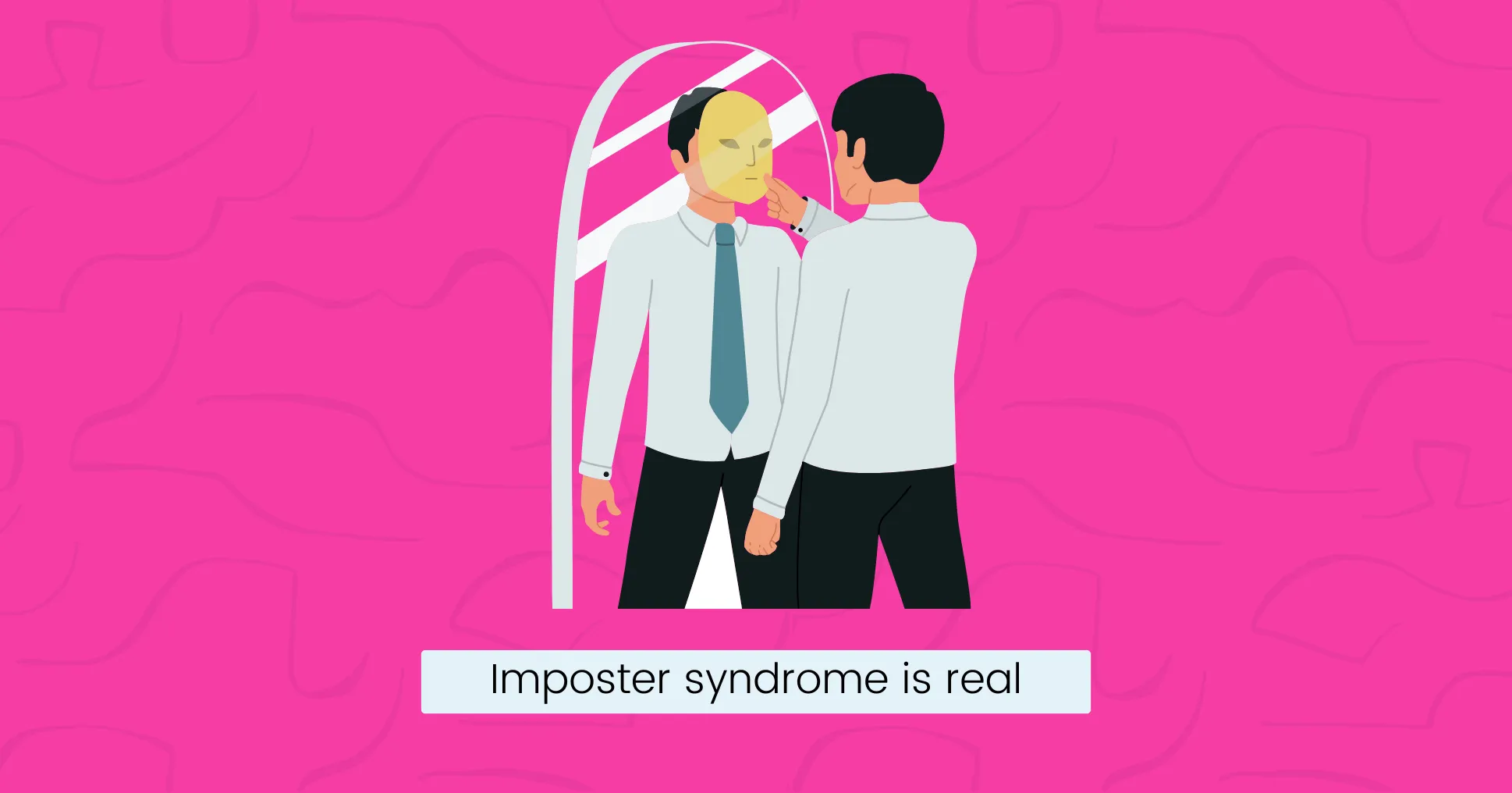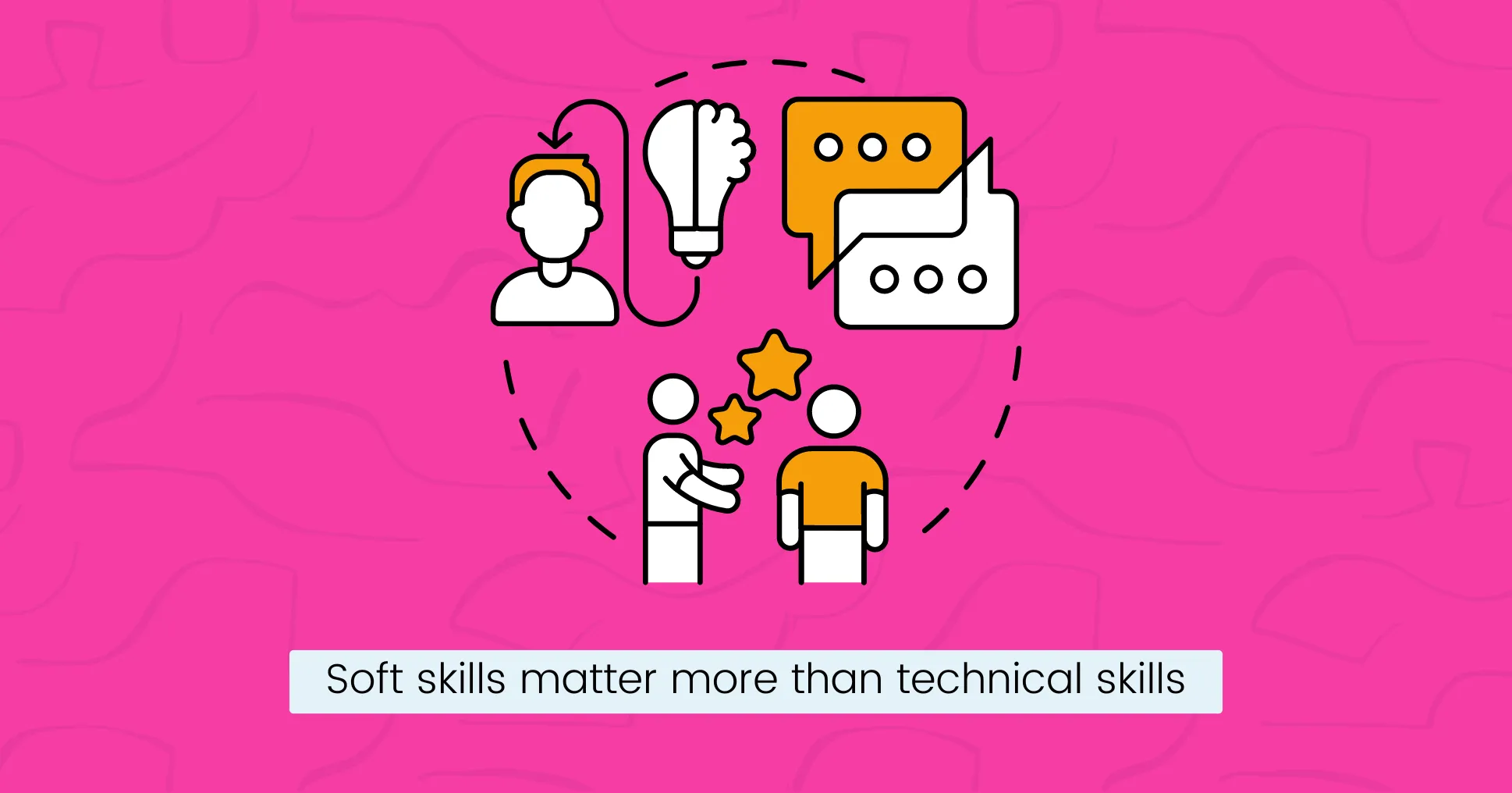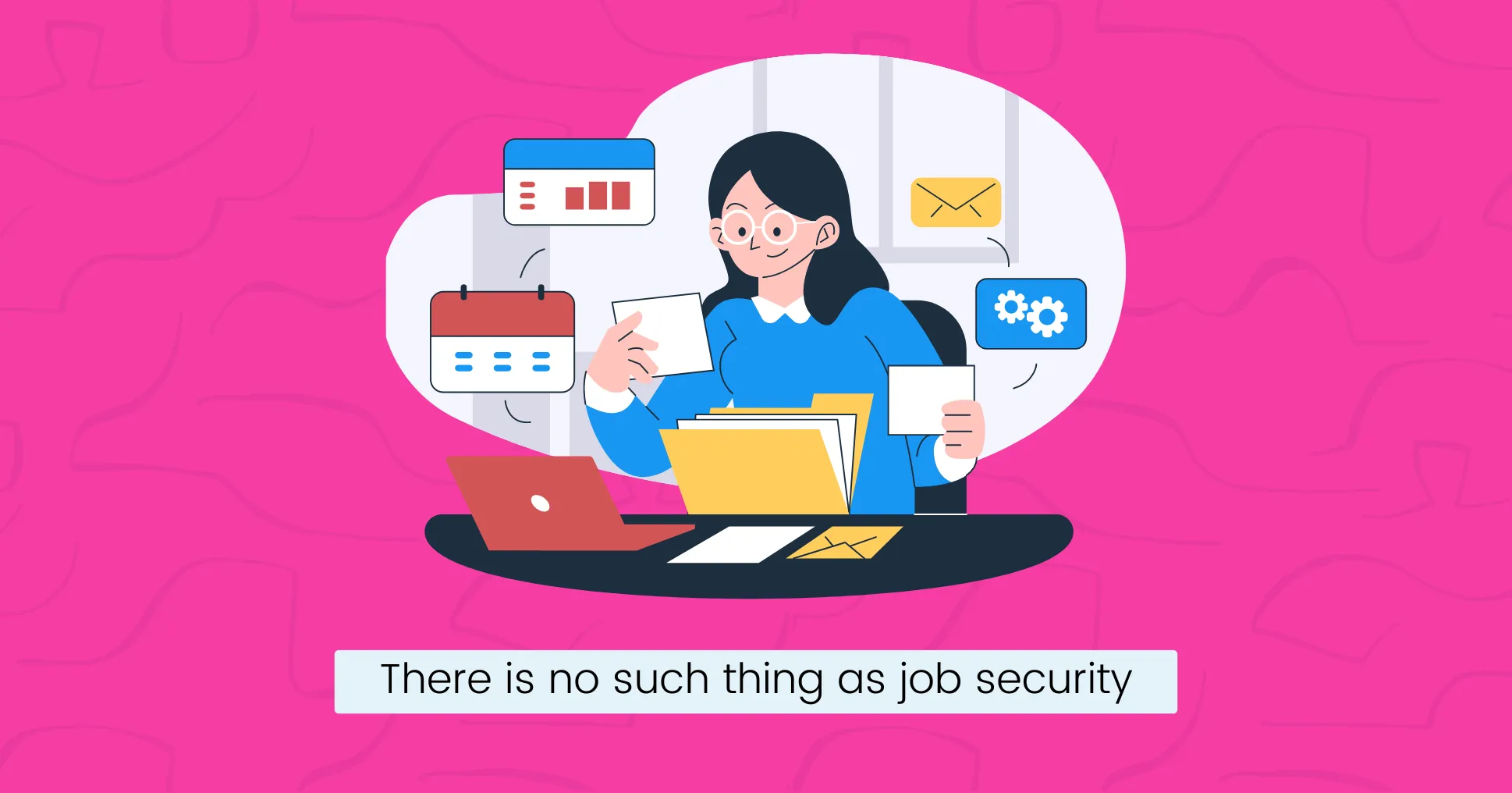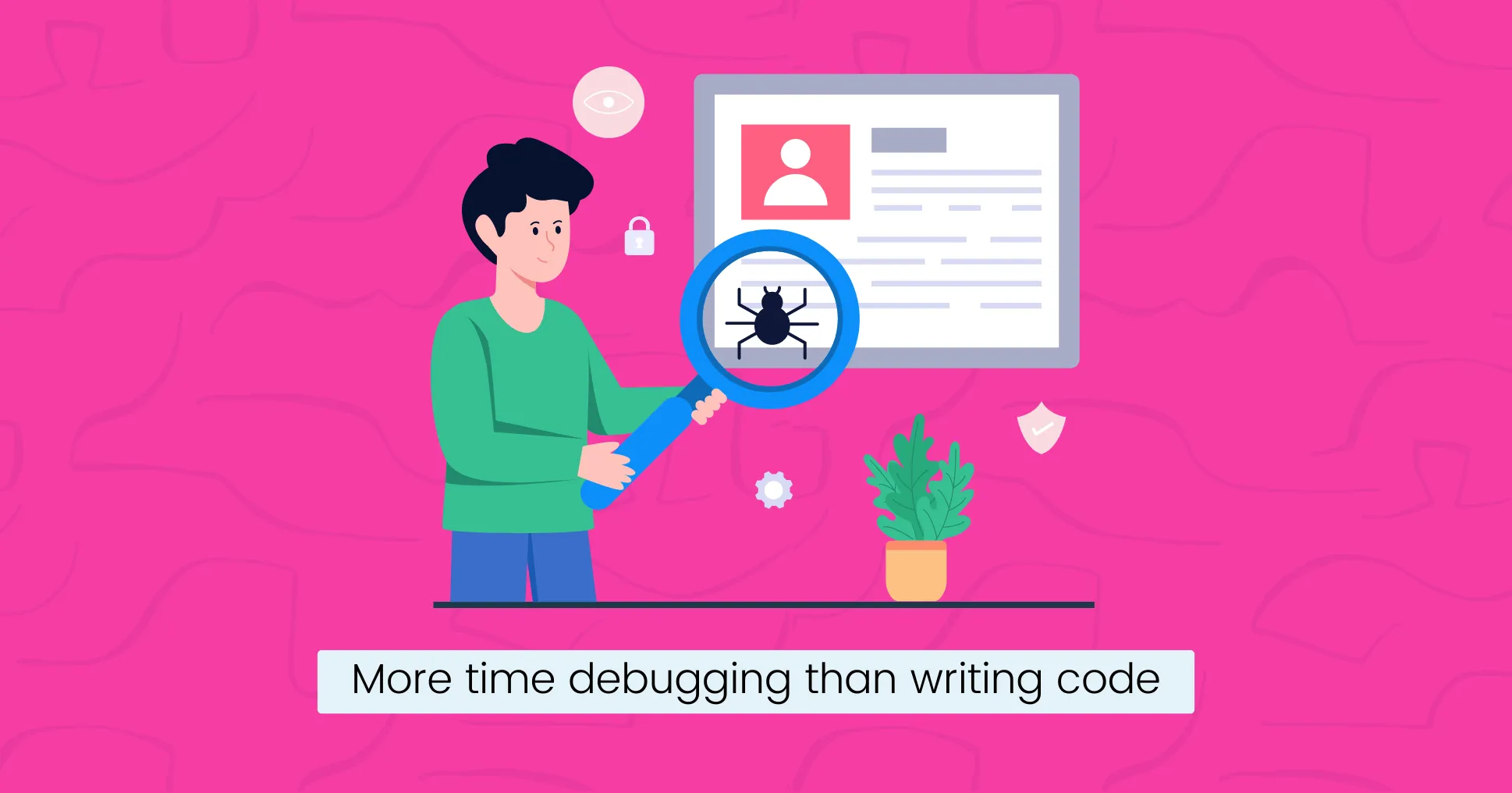
10 Hard Truths About Being A Software Engineer (2024)
Being a software engineer seems like a dream job.
With the growing need for software solutions across industries, there is never a shortage in demand for skilled software engineers.
A career in software development offers flexibility and a good salary with remote work opportunities.
But there are some hard truths that no one tells you about.
Long hours, constant learning, and unexpected job insecurity can leave you feeling stressed and unprepared for this challenging yet fulfilling career.
This guide will tell you the harsh truths about being a software engineer that you should know before you enter this exciting field headfirst.
Let’s get started.
snappify will help you to create
stunning presentations and videos.
Hard Truths About Being A Software Engineer
Here are some hard truths about being a software engineer that people do not talk about.
College does not prepare you for the job

You learn the basics in college. You learn how to solve theoretical problems and how to write code, but they don’t really prepare you for the day-to-day job.
Also, the material taught in colleges is mostly outdated and falls far behind what is currently in demand in the market.
So when you start your first job, you are faced with the reality that real world software development is a whole different game.
- You have to work in a team.
- Learn how to communicate and manage your time effectively.
- Deal with messy codebases.
- Manage unexpected changes in project requirements.
- Work with tight deadlines.
It involves a lot of trial and error and learning on the go.
That’s why you need to be resourceful and work on more projects to prepare for the job that awaits you.
You will never learn everything

Software development is a big field, with many languages, frameworks, and tools available and new ones constantly being developed.
There is so much to learn, but knowing it all is impossible.
Even if you are a genius, you cannot master all of these technologies.
You can either become an expert in a specific field or learn as much as you can about different skills.
If you don’t continuously learn and adapt, your skills will become irrelevant quickly.
But the good news is that there will always be something new to learn and it will only add to your existing skillset. You don’t have to start learning from scratch every time.
Imposter syndrome is real

You will most likely suffer from imposter syndrome at some point.
You will start to question yourself: “What if they realize I am not good enough for this job?”
It’s the persistent fear that you are not competent.
You start doubting yourself and think that any success you’ve had is just pure luck.
Even if you become proficient in a specific area, you will most likely be highly aware of everything you do not know at the same time.
Additionally, the developer community is full of seasoned professionals.
They have large social media and YouTube followings, and sell educational courses to teach thousands of people.
When you start comparing yourself to them, you may feel inadequate.
Experienced developers also feel this way, even if they don’t show it.
You need to understand that learning is part of the job, and not knowing everything does not make you an imposter it makes you human.
Being perfect is an illusion

You might think that if you work hard enough, you could write clean and flawless code.
But the reality is there is no such thing as a perfect system.
Every software project is a balancing act. You have to balance multiple priorities, such as:
- Make sure the system works correctly.
- It should perform well under different situations.
- It should be easy to maintain or update in the future.
These goals and changing requirements often conflict, making it impossible to achieve the best of both worlds.
The idea of perfection only holds you back from what you can achieve.
To get the results you want, you need to make smart trade-offs.
For example, sometimes you prioritize speed because your application needs to handle thousands of requests per second.
Other times, you focus on maintainability because the code will be worked on by many developers over the years.
So, there is no “right” way to do things, you must adapt and find the best possible solution based on the current requirements.
Soft skills matter more than technical skills

No doubt, technical skills are important in this field.
There are thousands of tutorials and online courses available where you can learn and build your technical skills.
You can practice working with a particular framework or tool, learn its pros and cons.
But you are setting up for failure if you can’t explain your code to others.
Soft skills are the real obstacle for most developers.
Imagine working with a tech genius who has a bad attitude or is difficult to talk to.
When team members don’t communicate properly with each other, misunderstandings arise and nothing gets done on time.
Hours of work can be wasted because of a simple miscommunication.
That’s why you need to improve your soft skills to excel in this field.
Other soft skills that are important include:
- Public speaking
- Teamwork and collaboration
- Empathy
- Creative thinking
- Leadership qualities
- Adaptability
- Willingness to learn
- Time management
- Self-confidence
There is no such thing as job security

Despite the industry’s high demand, software engineers struggle to find long-term stable jobs.
Like any other field, the tech industry is unpredictable and competitive.
Many companies are quick to hire people with a specific skill but rarely invest in improving those skills.
Skills that are in high demand today might become irrelevant in a few years.
This makes it imperative that you keep your knowledge updated.
Startups can run out of funding. Even established companies are not immune to the uncertain situations that can lead to layoffs. Such as:
- No generating enough revenue.
- Project cancellation.
- Changes in business goals or client requirements.
- Market shifts and mergers.
To remain relevant, you need to create a strong professional network and seek out new learning opportunities.
Clients don’t always know what they want

Clients often have a general idea about what they want, but they don’t know the specifics.
The gap in technical knowledge leads to confusion on both sides and makes it hard to deliver exactly what they want.
You might spend weeks developing a feature based on their initial description, only for them to change their mind once they see it in action.
Or they sometimes request features based on what they think they need, rather than what would solve their problem.
It’s your job to understand their desires and develop a plan to meet their needs best.
You need to learn how to say no to unrealistic requests with patience and effective communication.
You will face burnout

Long hours, deadlines, and stress can lead to physical and mental burnout.
- The pressure to keep up with market demands.
- Learn new technologies to stay competitive.
- Pulling late nights to fix critical bugs.
- Dealing with multiple projects at the same time.
- An endless backlog of tasks to complete.
All these can wear you down. You might start feeling demotivated and indifferent to things you once enjoyed doing.
Small problems you could easily handle before start to feel overwhelming, and you find it hard to focus on your daily tasks.
The key is to set boundaries and recognize the signs early. You need to find a healthy balance between your work and life.
Take regular breaks so you have enough time to recharge.
You will spend more time debugging than writing code

Coding and creating new features is the fun part.
But it is often just a small portion of what software developers actually do.
The more you code, the more you will realize that bugs are everywhere in your code.
The truth is you will spend more time debugging code than adding new features.
A bug in one part of the system can affect another part, which works fine. It is your responsibility to figure out why.
This can mean hours spent running tests to find that one line of code causing the issue.
You will also have to deal with other people’s code. That means working with poorly documented, messy codebases.
The good thing is that you start anticipating potential issues and write cleaner, well-organized code that is easy to debug.
Tip:
Learning to debug effectively and implement a solution is a valuable skill for a developer. Check out the rubber duck debugging method to make the process easier.
Everyone looks for documentation but no one wants to document

Imagine joining a new project. You are expected to fix bugs or add features, but you spend the first few days just trying to understand how the system works.
With good documentation, you can easily solve this problem.
But software developers often neglect to document their code. They view it as a tedious task that requires time and effort.
Investing time in documentation saves a lot of trouble later. It is especially helpful when you have to deal with tasks such as:
- Onboarding new team members.
- Update and maintain code.
- Dealing with legacy code.
snappify will help you to create
stunning presentations and videos.
Final Words
Every career has its ups and downs. Being a software engineer is no different.
What you need is dedication and a willingness to learn new things to succeed as a software engineer.
Accepting these truths can help you understand what you are getting into and move forward in your career.
If you liked this article, you will also enjoy reading:
- Principles of software development.
- How to become a 10x developer.
- How to become an AI engineer without a degree.
FAQs:
How long does it take to become a software engineer?
Becoming a software engineer usually takes about 4 years with a degree or 3 to 6 months through coding bootcamps and online courses. Self-study can also speed up the process.
What are the average salaries for software engineers?
On average, software developers earn between $150k to $160k per year. The average salary for software engineers varies according to experience, location, and industry.
